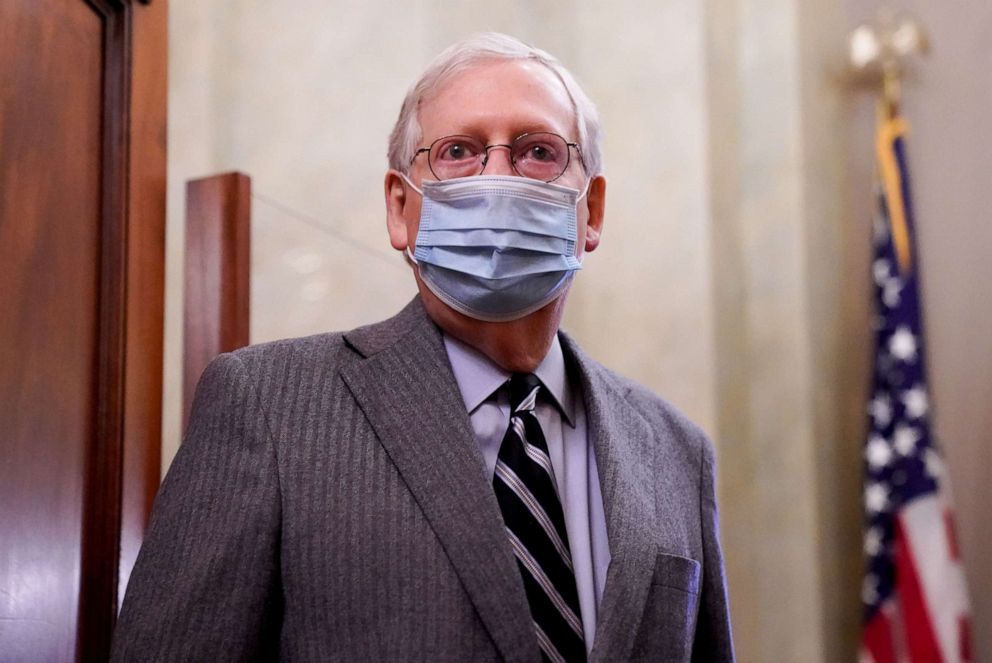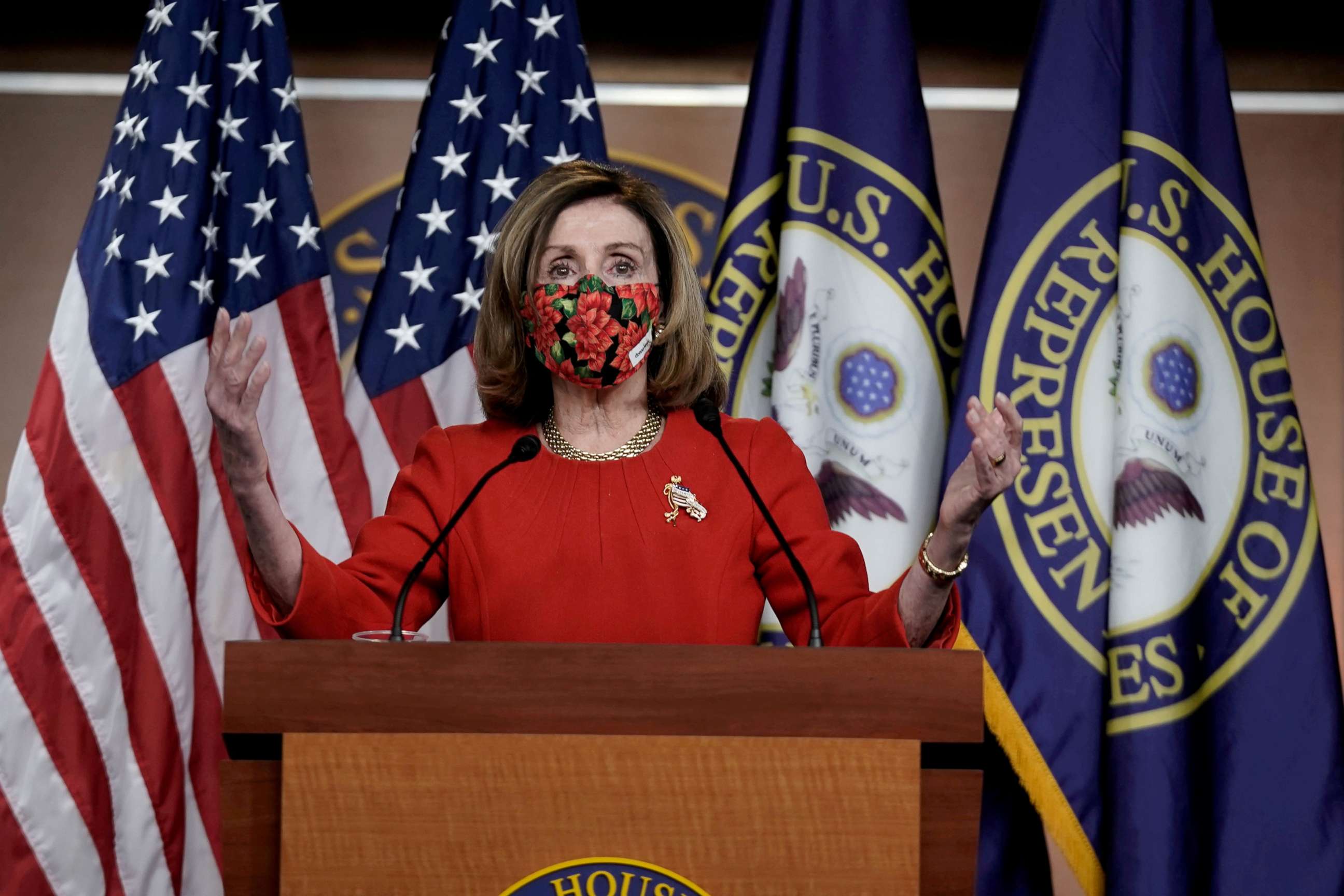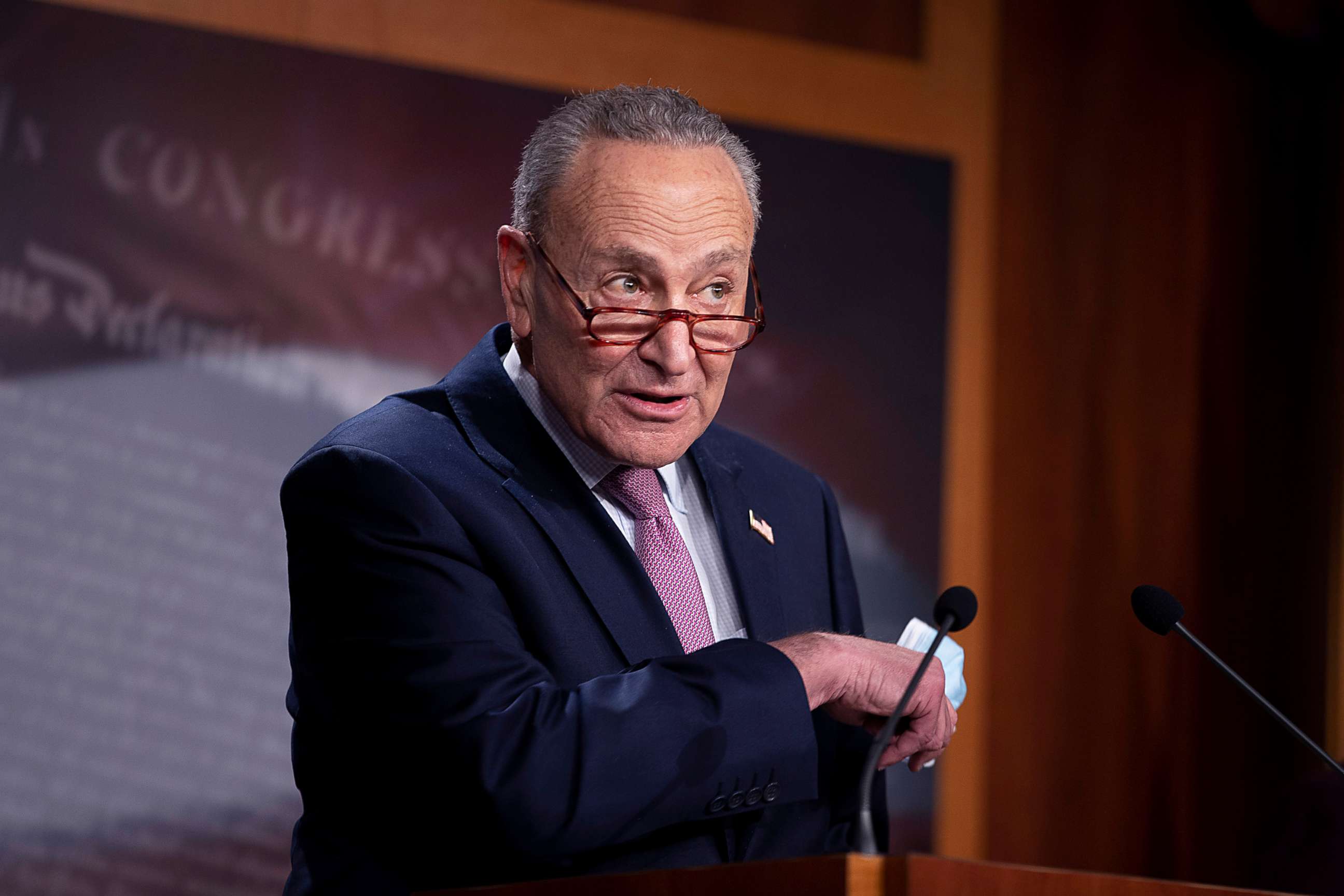GOP leadership silent as COVID-19 relief hangs in limbo
Trump said he would not sign the relief bill without $2,000 direct checks.
Senate Majority Leader Mitch Mcconnell now finds himself in the hot seat as Democrats begin rallying behind President Donald Trump's efforts to more than double the direct payment checks Congress secured in the just-passed coronavirus relief bill, leaving the fate of the aid package in limbo.
During remarks Tuesday night, Trump signaled he would not sign the bill, which was passed with overwhelming support late Monday, unless Congress included $2,000 direct checks to Americans, a proposal that flies in the face of the demands made by many Senate Republicans, some of whom had a tough time swallowing the $600 checks currently in the bill.
The aid package is tied to a large government funding bill that must be passed by Monday night. Yet as Congress stares down a looming government shutdown if Trump does not sign the bill, McConnell has so far been silent.

That's not for lack of goading from Democratic leadership on Twitter.
Shortly after Trump's announcement, House Speaker Nancy Pelosi tweeted that she was totally in support of Trump's $2,000 direct check idea and blamed Republicans for objecting to larger checks in the just-passed bill.
"Republicans repeatedly refused to say what amount the President wanted for direct checks. At last, the President has agreed to $2,000 — Democrats are ready to bring this to the Floor this week by unanimous consent. Let’s do it!" she tweeted.
She was quickly joined by Schumer, who tweeted multiple times in support of larger direct checks and called on McConnell to help make it happen.
"Americans need $2,000 checks," Schumer tweeted Wednesday. "Senator McConnell: Americans need help NOW."

Pelosi formally announced that House Democrats will attempt to pass a measure securing $2,000 direct checks on the House floor on Thursday by unanimous consent, meaning that the objection of even one representative will be enough to table the effort.
It is not expected to pass the House but only because it will force at least one GOP member to stand and directly oppose an initiative of the president.
McConnell is facing the same issue in the Senate: oppose the president and reject efforts to expand the COVID-19 bill, or put forward a proposal that many of his members won't be able to stomach.
Some GOP members have been fighting against direct checks for weeks. Sen. Rand Paul, R-Ky., said on Fox News last week of $600 payments, "what could be dumber as an idea?”
Trump's opposition to the $600 payments came as somewhat of a surprise, even to those in the administration. Trump himself was not a part of negotiations on the newest relief deal, but his surrogates, Treasury Secretary Steve Mnuchin and Chief of Staff Mark Meadows, were.
Tuesday night around 6 p.m., White House spokesperson Brian Morgenstern said the president “indicated his intent to sign the bill because of the direct cash payments to some Americans and new support for small business.”
But with Trump's unexpected eleventh-hour objection, and with last-ditch efforts to secure higher value checks unlikely to prevail, Congress must now scramble to come up with a new solution if Trump refuses to sign the bill. Because the bill's language has already been passed, it cannot simply be amended as Trump suggested Tuesday.

The government is currently staying funded under a seven-day provision, passed Monday night, aimed at keeping funds flowing while the giant spending bill is passed into law. Those funds run out on Monday at midnight.
In addition, several coronavirus protections that Congress secured in the last major coronavirus relief bill -- the CARES Act -- are running out, including unemployment protections for some workers and an eviction moratorium that's keeping some tenants in their homes.
Congress is running out of time, and at this stage the massive 5,593 page bill comprising COVID-19 aid and government funding has not yet even been delivered to Trump's desk.
Under normal circumstances, Trump could veto the bill. But since it passed with overwhelming majority in the House and Senate, his veto would very likely be overturned. Trump could also refuse to sign the bill and it would still become law in 10 days.
But with just 11 days until the new Congress is sworn in on Jan. 3, Trump may have the rare opportunity to utilize a different option to kill the bill without either signing it or vetoing it: the pocket veto.
Unless Congress sends Trump the bill by Wednesday night, the president can utilize the pocket veto -- that is literally holding the bill in his pocket and refusing to return it to Capitol Hill before the expiration of the 116 Congress -- making it impossible for Congress to hold a veto override vote.
If Trump does this, the bill dies in the White House, and Congress will be forced to start over again.
Congress has until Wednesday night to get the massive bill to the president if lawmakers want to ensure Trump doesn’t use this option. But it usually takes several days to enroll a bill of this size. If Trump uses a pocket veto, Congress will be forced back to square one on a new bill -- opening up another round of contentious negotiations.
This report was featured in the Thursday, Dec. 24, 2020, episode of “Start Here,” ABC News’ daily news podcast.
"Start Here" offers a straightforward look at the day's top stories in 20 minutes. Listen for free every weekday on Apple Podcasts, Google Podcasts, Spotify, the ABC News app or wherever you get your podcasts.




